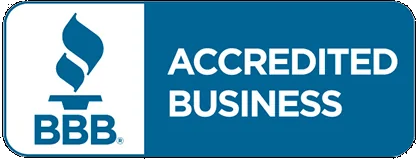

USDA Loans: A Path to Affordable Homeownership in Massachusetts
Explore how USDA loans offer affordable homeownership in eligible MA rural areas. Learn key income, credit, and location requirements to qualify.
Owning a home is a dream that many aspire to fulfill, but navigating the complex world of mortgage loans can often be overwhelming. If you're considering homeownership in Massachusetts, especially in rural areas such as Dartmouth and Westport Massachusetts, you might be pleased to learn about the USDA home loan program. Backed by the United States Department of Agriculture (USDA), these loans offer a path to affordable homeownership for eligible individuals and families. In this guide, we'll delve into the specific requirements to qualify for a USDA loan in the state of Massachusetts.
Understanding USDA Loans: A Quick Overview:
The USDA loan program, also known as the Section 502 Guaranteed Loan Program, aims to provide low-to-moderate-income borrowers with the opportunity to purchase safe and affordable housing in eligible rural and suburban areas. Massachusetts, despite being known for its bustling cities, boasts a number of areas that fall within the USDA's definition of rural.
- Location Eligibility: One of the primary prerequisites for obtaining a USDA loan is the property's location. To qualify, the property must be situated in an eligible rural areas as defined by the USDA. While many parts of Massachusetts may seem urban, certain towns and communities fit the USDA's criteria, making their residents eligible for these loans. Borrowers can purchase owner occupied, single family residence only. Multi-family (2-4 unit) homes are not eligible for USDA financing.
- Income Limits: USDA loans are designed to assist low-to-moderate-income families, so there are income limits to qualify. The specific USDA income limits vary depending on the county and the size of your household. The USDA considers all sources of income for all household members, even those not list on the mortgage "note". To determine if your income meets the requirements, refer to the USDA's income eligibility calculator or consult with a qualified mortgage broker.
- Citizenship and Residency: To qualify for a USDA loan, you must be a U.S. citizen or a permanent resident. Additionally, you should have a stable and reliable source of income to demonstrate your ability to repay the loan.
- Credit History and Score: While USDA loans are more forgiving when it comes to credit scores compared to conventional loans, having a decent credit history is still very important. Most lenders prefer a credit score of 620 or above, although exceptions can be made based on the overall strength of your application. Compensating factors such as additional assets or years with current employer may help. It's essential to work on improving your credit score if needed before applying.
- Debt-to-Income Ratio: When it comes to loan eligibility, your DTI ratio (debt-to-income) plays a crucial role. It compares your monthly debt payments to your monthly income, with a preferred "back-end ratio" of 41% or lower. In certain cases, exceptions can be made based on compensating factors, like a solid credit history or substantial cash reserves. USDA's guidelines are also set for a "front-end housing ratio" of 29%. This means that the standard guidelines want the monthly mortgage payment (including taxes taxes, insurance, etc.) to be less than, or equal to, 29% of your total gross monthly income.
- Repayment Ability: Our lenders will assess your "ability to repay" the loan by considering your income, employment history, and financial stability. A consistent and reliable source of income is vital to assure lenders that you can make your mortgage payments on time. A 2-year work history with pay stubs or earnings statements for most recent 30 days as well as W-2 forms from the previous 2 years are required. For self-employed borrowers you will need at least 2 years filed tax returns or at least 1 year and same line of work from previous employment. This mortgage payment calculator is a great "self-help" tool you can use to determine a monthly mortgage payment that works for you and ensure that you don't take on more mortgage debt than your family can handle.
- Loan Repayment Period: USDA loans typically offer 30-year repayment periods. This extended period can lead to lower monthly payments, making homeownership more affordable for qualified borrowers. Onshore Mortgage, LLC.'s lenders have terms available from 15-30 years with "Flex terms" such as 28,29,27 years available.
- Homeownership Education: Completing a homeownership education course is not required for first-time homebuyers to qualify for a USDA loan. These courses however provide valuable information about the responsibilities and challenges of homeownership. Consider enrolling in a free homeownership course course early in your loan process to educate yourself on the intricacies of homeownership so that you can make informed decisions.
- The Application Process: Once you've determined that you meet the USDA loan requirements, the application process can begin. This involves gathering necessary documentation, including proof of income, employment history, credit reports, and property details. Working with a knowledgeable mortgage broker such as Onshore Mortgage, LLC. who has experience with USDA loans can significantly streamline the process.
In Conclusion
Becoming a homeowner through a USDA loan in Massachusetts can be an excellent opportunity for individuals and families seeking affordable housing options in eligible rural and suburban areas. By meeting location, income, credit, and repayment requirements, you can navigate the path to homeownership and make your dream of having a place to call your own a reality. Remember, each borrowers situation is unique, so consulting with a qualified mortgage professional is essential to ensure you understand the nuances of the USDA loan process and have the best chance of success. Contact Onshore Mortgage, LLC. for all your mortgage needs!

Latest Posts


Grant R. Menard MLO NMLS# 17308
CLICK HERE
Onshore Mortgage

Massachusetts Division of Banks NMLS#MB1995582
CLICK HERE
The information contained in this site has been prepared by an independent third party and is distributed for educational purposes only. This is designed to give helpful tips on the mortgage process and is not intended to give legal advice.
Information is considered reliable but not guaranteed. This is not a pre-qualification, pre-approval, loan approval or commitment to lend. We arrange but do not make loans.
© 2020 Onshore Mortgage, LLC. all rights reserved.


.webp)
